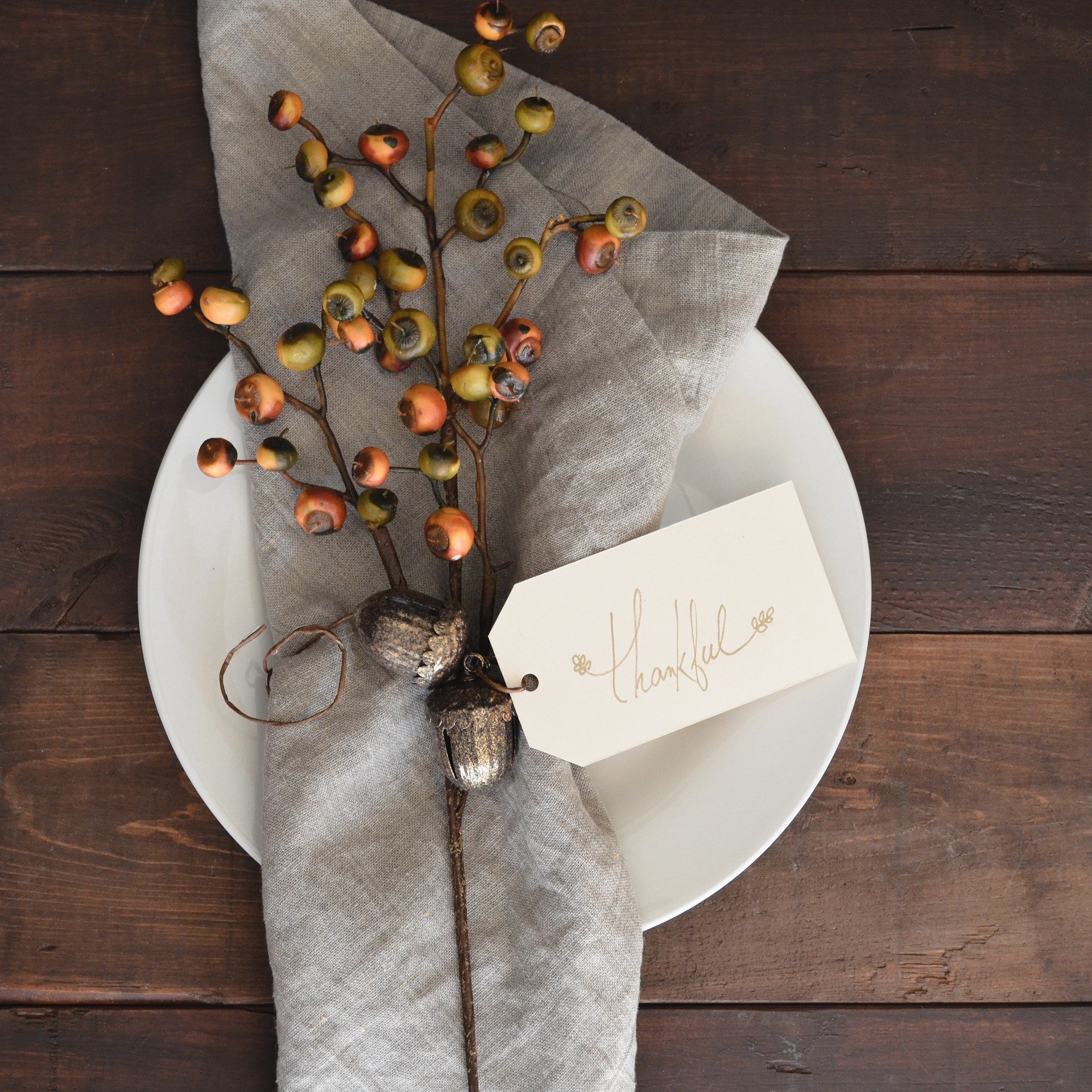Thanksgiving can bring up a lot of stress and guilt because we typically eat differently on this day. For some folks, this may bring up feelings of needing to punish themself afterward for their choices, and for others, it may mean they have to earn their choices on Thanksgiving by exercising extra or by skipping meals. Some may restrict during the meal, unable to be present and enjoy it while some may even avoid Thanksgiving altogether. However, as you are working on your relationship with food and learning to listen to your body, Thanksgiving can also be a great opportunity to practice some of your new skills.
First, start your day off right by eating a normal breakfast. While some people skip breakfast on Thanksgiving morning in preparation for the big meal, this may not be the best idea. Even if you may indulge at the big meal, remember that our bodies still need calories throughout the day to keep our bodies working. When we restrict food and our brains are low on calories, we have a harder time listening to our bodies which can lead to overeating and impulsive choices.
It’s important to give yourself some compassion -it’s ok to splurge sometimes. From the beginning of time, humans engaged with food in a feast-or-famine fashion. When food was plentiful, it was important to get the calories when they were available. So, enjoy the abundance! Literally, all the dishes served at Thanksgiving offer some nutritional value. Even pumpkin pie has fiber, vitamins (A, C, E, and K) and minerals (iron, magnesium and potassium). So please don’t feel bad for your choices on Thanksgiving.
In addition to the food itself, you also receive nourishment from the sense of community created when you break bread with your loved ones. Shared meals play an important cultural role in society as a time when we celebrate and commiserate together. Take time to connect with those around you. Chat and tell stories around the dinner table. This also helps you to take it slow and focus on how you are feeling.
Have a little of everything, if you want to. There are a ton of choices on Thanksgiving and you can tailor your plate to your exact tastes. An exception to this rule is to observe any guidelines you have around foods to which you are allergic or those that give you adverse reactions. Approaching dinner with curiosity allows Thanksgiving to be a time to discover new foods or to try out different preparations for foods you already eat. Remember to check in with yourself continuously to see, “do I like this?” Sometimes we eat because we don’t want to hurt someone’s feelings or because we don’t want to be left out. Here is your permission -If you don’t want to eat something, you don’t have to. If someone offers you something you don’t want -No, thank you. -is a full complete sentence.
When we restrict foods, we tend to binge on them when they are available. This can happen with those special Thanksgiving foods too. If Dad’s extra special mac’n cheese only gets made once a year, naturally you are likely to eat more of it than you would if it was a weekly affair. So first, forgive yourself if you are reaching for multiple servings of that special dish, and then acknowledge how your body is reacting to that deprivation. If that dish is your favorite, ask for it to be prepared at other times of the year or for them to teach you the recipe so that you can prepare it for yourself. If the novelty and scarcity of it helps it to feel special, be mindful not to scarf it down while catching up with that cousin -instead, take your time and focus on truly savoring it.
While we are focusing on our relationship with food at the dinner table, sometimes judgment can come from external sources. Setting boundaries with family members can be challenging. There can be a lot of talk about how bodies have changed since the last time folks have gathered or even commenting on people’s portions or food choices. It’s absolutely ok to let your family members know your boundaries around your body and your plate. Try something like this – “I’m working on my relationship with food right now and learning how to listen to my body. When other folks share their observations of my eating, it makes it harder to hear my own intuition. I super appreciate your respect for the journey I’m on right now. Do you mind if I change the subject?” Having some handy conversation starters or interesting current events to chat about can always help too.




